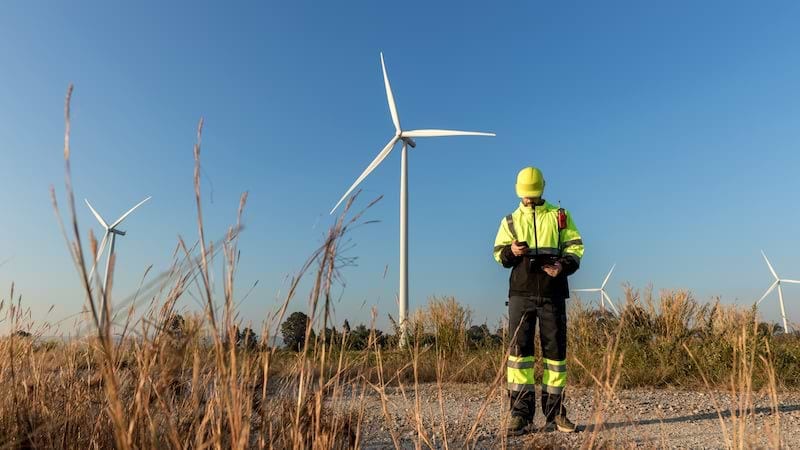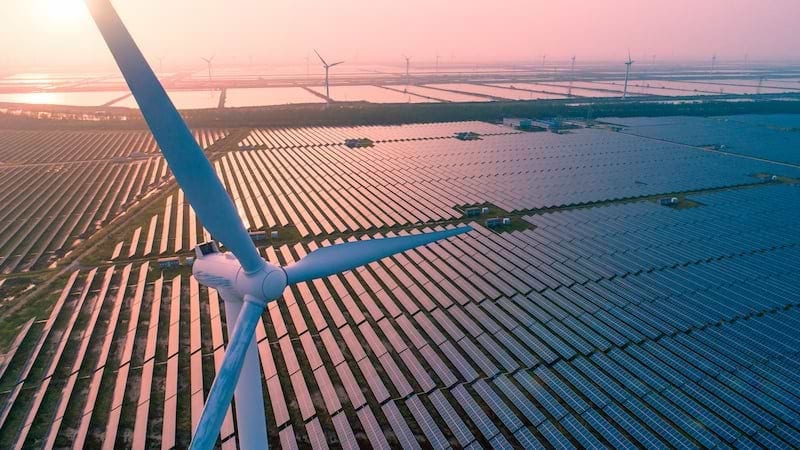{{item.title}}
{{item.text}}

{{item.text}}
In a world facing climate change, few industries will feel a greater need to adapt than the carbon-intensive oil and gas sector. We can help navigate industry challenges.

ESG pressures and geopolitical factors are poised to instigate a profound transformation in Belgium's energy landscape. Just as the global economy embarked on a green recovery from the COVID-19 pandemic, unprecedented market volatility disrupted the already intricate dynamics of tight oil markets, intensifying price fluctuations. Energy companies operating in Belgium are compelled to realign their ESG initiatives with a heightened focus on supply security and energy independence. The gas sector, in particular, is actively engaged in strategic diversification efforts, fostering a renewed impetus toward transitioning to renewables within the country.
The ongoing crisis serves as a compelling catalyst for an immediate shift toward green initiatives, steering away from a timeline that extends over the next 30 years. This acceleration underscores the need for developing future-ready energy storage solutions and expanding interconnections to facilitate cross-border energy sharing among nations. In the context of Belgium's energy landscape, significant investments in solar power, heat pumps, and energy efficiency are deemed crucial. Additionally, expediting approval processes for renewable infrastructure projects emerges as a vital step in navigating this transformative period.
Previously, the imperative to decarbonize was predominantly perceived through the lens of ESG considerations. However, the current circumstances serve as a wake-up call, underscoring that transitioning to clean energy is not just an ethical choice but an imperative for ensuring energy security in Belgium.
Belgium's energy sector faces a complex array of challenges, driven by various factors impacting the historically volatile oil and gas industry. Key drivers include the growing pressure for digital transformation, evolving regulations on carbon emissions reduction, new infrastructure investment demands, and changing workforce needs specific to the country.
To effectively navigate the challenges, energy companies in Belgium must reassess their business strategies. In the face of an evolving energy landscape, they have three primary choices: focusing on developing fossil fuel-based resources, diversifying through strategic acquisitions or embracing other energy capabilities, and committing to renewable energy resource development.
Embracing digital transformation and updating technologies present opportunities for efficiency improvements in Belgium's energy sector. This applies upstream and downstream, potentially saving hundreds of billions of dollars in capital and operating expenditures by 2025. Digital technologies not only enhance efficiency but also provide a competitive edge, fostering ongoing innovation and growth.
The global trend towards achieving net-zero greenhouse gas emissions by 2050 prompts Belgian oil and gas companies to reconsider their strategies. Questions arise regarding the transition away from traditional fossil fuels and how innovative technologies can contribute to emission reduction. The acceleration of net-zero initiatives necessitates a reevaluation of business strategies within Belgium's energy sector.
As emissions reporting requirements evolve, oil and gas companies in Belgium will face increasingly strict standards for consistency, assurance, and sustainability. Moreover, the regulatory environment is rapidly changing, with governments exploring various tax and pricing strategies to achieve energy efficiency and reduce fossil fuel consumption.
Belgium's energy industry confronts a talent shortage, emphasizing the importance of attracting individuals with advanced analytics and IT skills. As digital transformation gains momentum, companies need to attract talent not only in traditional areas but also in emerging sectors such as power retail and offshore wind. Retaining this talent requires fostering a flexible, innovative, and competitive workplace culture.
Transforming Belgium's energy system incurs significant costs. Ensuring reliability becomes a challenge as a broader range of energy resources integrates into the complex global system, including intermittent sources like wind and solar.
As Belgium's energy landscape transforms, mergers and acquisitions require heightened caution and due diligence. Accelerating trends, including ESG considerations, net-zero goals, digital transformation, and climate change, elevate the stakes for M&A activities. Consequently, companies may opt for partnerships and alliances to grow talent, assets, and markets.
Belgium's oil and gas sector faces evolving emissions reporting requirements, emphasizing the need for adherence to increasingly strict standards for consistency, assurance, and sustainability. The country's regulatory environment, particularly in carbon markets, is rapidly changing, testing various tax and pricing strategies to reduce fossil fuel consumption.
With the world progressing towards net-zero goals, the oil and gas industry in Belgium experiences a decline in investments in new fossil fuel supplies. However, there is renewed interest in securing energy supplies through domestic hydrocarbon production amid expectations of energy supply shortages.
Facing evolving business growth models, Belgium's energy sector seeks to build value through improved ESG performance. Companies increasingly view ESG efforts as a means to reduce risks, enhance resilience, improve corporate reputations, generate revenues, and create long-term value in the changing economic landscape.
In recent years, companies have steadily increased their investments in renewable energy and ‘green molecule’ resources like hydrogen fuel produced using renewables rather than natural gas. Those investments are expected to keep growing as more businesses and governments commit to net-zero goals. However, more progress is needed: Oil, coal and natural gas still account for 80% of today’s energy supply.
The shift to greener energy sources in Belgium not only transforms the global energy system but also drives change across supply chains. Embracing this change creates new opportunities for businesses, demanding lower-carbon raw materials, parts, products, and means of transport.
With investors directing funds towards renewables, Belgium's oil and gas companies face a capital-constrained future. Strategic planning is essential to avoid energy supply shortages, and reassessing current business strategies is crucial to discover new opportunities in the evolving market.
As oil and gas demand and prices rebound in Belgium, companies are presented with positive free cash flow. This raises questions about the optimal use of funds, offering options such as debt repayment, dividend payouts, new asset developments, infrastructure upgrades, and mergers or acquisitions.
With declining company debt, Belgium's oil and gas sector experiences increased activity in strategic M&A. This activity shapes the industry, creating new market alignments and consolidating with complementary sectors.
ESG requirements continue to evolve in Belgium, presenting ongoing challenges in setting targets, tracking performance, and reporting progress. Building momentum towards sustainability requires cultural change and buy-in from the workforce, which is likely to become more manageable as ESG requirements standardize.
Belgium's oil and gas industry faces potential risks to its social license to operate if clear actions are not taken to reduce greenhouse gas emissions through renewables, carbon capture, or other strategies. Acting sooner rather than later allows companies to demonstrate commitment to sustainability, improving resilience and building long-term value.
Commodity traders in Belgium continue to show a strong interest in short-term oil and gas investments. However, the industry's carbon-heavy footprint prompts investors, including commodity traders, to prefer companies improving ESG performance and working towards net-zero goals.
While digital transformation offers efficiency gains in Belgium's energy sector, it also exposes the industry to increased cyber threats. Enhancing cybersecurity becomes imperative to prevent disruptions, financial losses, and potential loss of life. Companies leading in cybersecurity will gain a competitive edge in Belgium's evolving energy landscape.
Fuelling a resilient future through cross-industry convergence, powerful alliances, greener investment and greater use of renewables will deliver radical decarbonisation, creating greater value for people, planet and performance. It is an imperative for today.
Energy, utilities and resources sectors will be a bright spot for M&A activity in 2024 as the energy transition continues to attract investor interest.
{{item.text}}

{{item.text}}













